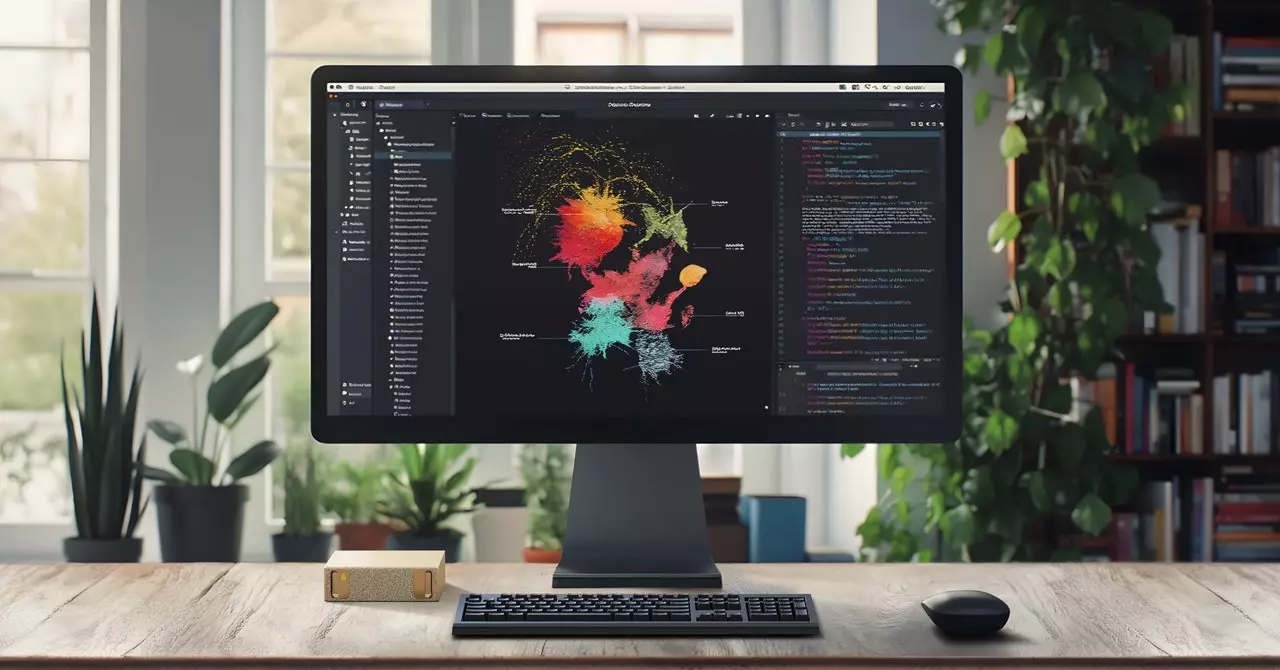Artificial intelligence (AI) has transitioned from a niche area of research into a fundamental cornerstone of modern technology. Nvidia, long recognized for its prowess in producing graphics processing units (GPUs), is at the forefront of this evolution, supplying chips that power many of the leading AI applications available today. In a strategic move to meet the burgeoning interest in open-source AI and personal computing solutions, Nvidia recently announced the launch of its compact “personal AI supercomputer,” dubbed Digits. Set to retail for $3,000 starting in May 2023, this innovative machine is poised to empower DIY enthusiasts and research professionals alike.
Nvidia’s Digits represents a significant shift toward democratizing AI technology. Historically, access to powerful computing resources has been limited to large organizations with the financial means to invest in complex infrastructure or to lease cloud services from major providers like Amazon and Microsoft. Jensen Huang, Nvidia’s CEO, emphasized this democratization during his CES keynote, stating that providing personal AI supercomputers to professionals and students would enable them to influence the future of artificial intelligence directly.
The Digits machine, roughly the size of a small book, is engineered to harness Nvidia’s advanced GB10 Grace Blackwell superchip. This chip is tailored for AI model training and execution, boasting a generous 128 gigabytes of unified memory and up to 4 terabytes of NVMe storage. Such specifications not only enhance the machine’s performance but also allow users to engage with robust AI models, which were previously only accessible through high-end servers or extensive cloud services.
Nvidia’s strategic focus on Digits allows it to tap into a growing segment of tech enthusiasts eager to experiment with AI. The device is capable of running large-scale language models with up to 200 billion parameters, thereby placing significant computational power in the hands of users. This capability is particularly enticing for hobbyists and researchers seeking to work with sophisticated AI frameworks, including Meta’s Llama model, which features an astounding 405 billion parameters.
With the connectivity feature allowing multiple Digits machines to be linked via a high-speed interconnect, Nvidia is ensuring that users can scale their resources as needed, making individualized AI research more feasible. This accessibility could precipitate a wave of innovation as individuals undertake experimentation that has previously been relegated to enterprise-level settings.
Nevertheless, one must recognize the limitations inherent in the Digits machine. While the desktop supercomputer may enable users to approach the capabilities of proprietary models from giants like OpenAI and Google, it remains constrained compared to the immense power derived from their extensive data centers. Therefore, while Digits is a significant step for personal computing, its performance will likely fall short compared to algorithms driven by aggregated cloud resources.
Moreover, Nvidia’s announcement and product launch come at a time when competition is heating up in the AI sector. As tech companies race to build more powerful and efficient hardware optimized for AI applications, Nvidia’s ability to maintain its market dominance will be challenged. Although Digits could help the company bolster its sales among individual users and specialized research sectors, the continuous evolution of technology entails that profitability will also necessitate ongoing innovation.
As Nvidia rolls out the Digits personal AI supercomputer, it is positioning itself as a critical player in the future of computing. With AI becoming increasingly integral to various industries, Nvidia’s approach signals a determined effort to broaden access while simultaneously solidifying its standing as an industry leader.
The ramifications of introducing such technology go beyond just Nvidia’s reputation and profitability; they touch on the broader AI ecosystem, opening up avenues for exploration and discovery. By empowering individuals and small teams with powerful AI tools, Nvidia could catalyze a new wave of innovation and creativity in the field of artificial intelligence. The future of AI may very well hinge on small experiments that are made possible by personal computing solutions like Digits. In doing so, Nvidia not only strengthens its market position but fosters an environment ripe for technological advancement—the very essence of the next generation of AI applications.

